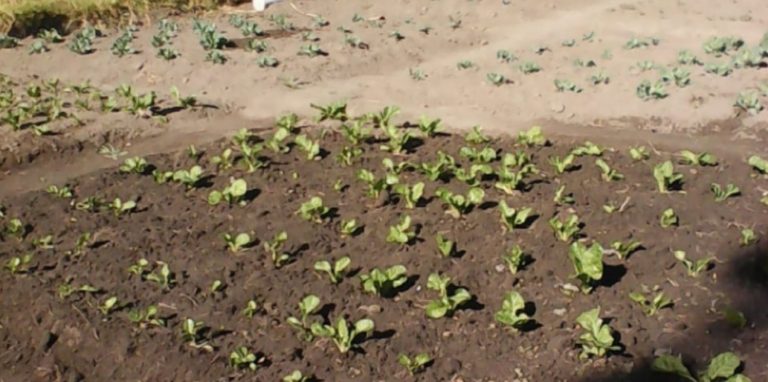Food Security: participation of young people in community gardens
12 September 2023 | Nompumelelo Cebekhulu, Sikelela Jiba and Ntombizandile Mjekula Building Community Education Programmes SÉCURITÉ ALIMENTAIRE

The youth unemployment rate in South Africa has drastically increased over the past few years, and currently stands at 51.6% according to Statistics South Africa, leaving many in dire poverty.
There are many initiatives by various social groups, particularly in rural and marginalised communities, to try to deal with the many socio-economic challenges caused by unemployment, including poverty. In many instances, these initiatives have little or no support in terms of resources from the government. In particular, agricultural projects such as community food gardens are not supported. As a result, many young people are reluctant to participate in these projects. In contrast, initiatives such as the Expanded Public Works Programme (EPWP), Community Work Programme (CWP) and others such as corporate internships and learnerships provided by Sector Education and Training Authorities (SETAs) are fully supported by government.
The SETAs model in South Africa is not inclusive. The SETAs’ skills programmes are aimed at training for the job market. The AgriSETA, for example, does not fund individuals, rather they require individuals to apply through formal entities or accredited training providers. This creates a barrier for agri-ecologists and young people who have experience in agriculture and who could use this experience to improve their livelihoods. However, they are unable to do so due to a lack of financial support. Young people actively participate in initiatives where they are remunerated. If the AgriSETA could support those working in community agri-projects, it would motivate many more young people to take part.
The government, through the Department of Agriculture and AgriSETA, or the private sector through its Corporate Social Responsibility (CSR) programmes, could support community food gardens and allocate stipends for young people in this sector to motivate them to take part. The government could do this through their learnerships and internships model, providing support to help agricultural projects initiated by communities until they become sustainable. Local governments and Ward Councillors could also support these initiatives through the Ward allocated budget.
Funding and support for community food gardens can have much more value and impact than placing young people in corporate learnerships and internships, where at the end all they receive is a certificate which does not guarantee them a job. With community agriculture projects, there are numerous benefits. The projects do not only benefit individuals but have great potential to benefit the whole community as people work collectively, and share the proceeds and crops. These projects are easily extended to and replicated in other communities. Community projects provide a space for skills transfer, preservation of intergenerational knowledge and lifelong food security for rural and marginalized communities. This is why the time has come for the creation of Community-based SETAs,
(or ComDevSETAs).